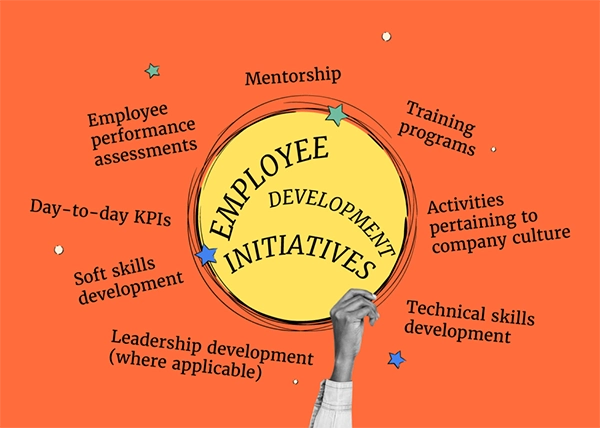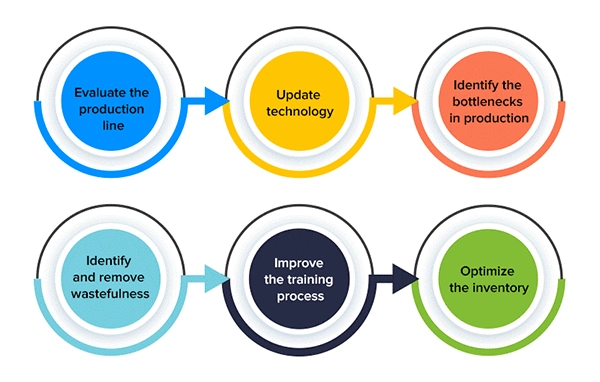6 Tips to Manage Your Business in A Competitive Environment

Do you want your business to stand out and survive in a highly competitive market? Gone are the days when old-school slogans and high-dollar ad campaigns could drive leads. A new age comes with new obstacles to overcome.
Being a common being you’ll agree that consumers receive so many ad impressions throughout the day that most of the time they ignore them out of frustration.
Since a label isn’t run in a vacuum, it is a must to truly make your line of work stand out. Beyond unique products or services, it may demand strategic insight, innovative thinking, and an unflinching focus on operational excellence.
At its core, these are fruitful management approaches that show the potential to adapt to rapidly changing market conditions and consumer expectations.
Here, in this guide, you’ll get to look at six practical tips for managing your company effectively in the face of competition.
Innovate Continuously
Innovation is the lifeblood of any company seeking to outmaneuver competition. It’s not only about creating new products or services but also about rethinking processes, models, and client engagement techniques to offer something truly unique and valuable.
Innovation requires a culture that encourages risk-taking, supports creative thinking, and values experimentation as a path to discovery and growth.
Fostering this culture of innovation starts with leadership. By setting a vision that prioritizes and rewards innovative thinking, companies can encourage their teams to explore new ideas without fear of failure.
Investing in research and innovation, staying abreast of technological advancements, and being receptive to change are all vital components of an innovative strategy.
When a company continuously innovates, it not only stays ahead of industry trends but also sets new benchmarks, compelling competitors to follow its lead.
Invest in Employee Development

Investing in employee development is not only about enhancing individual skills but also about building a more resilient and agile organization. Employees who are continuously learning and growing are more engaged, productive, and able to contribute to innovation.
Development opportunities can range from professional training and workshops to leadership training programs and cross-functional assignments, all aimed at broadening skills and perspectives.
Do You Know?:
In a survey, employees were asked What do employees want from training? In response, over half i.e. 55% of workers, stated that they would enjoy better opportunities to sharpen their skills and refine their work.
Whereas, about 68% contend that the training they are getting is adequate for their position.
Encouraging employees to enroll in higher academic programs with a concentration in the field of management can also prove worthwhile.
Looking up the keyword bachelors in management on any search engine will prove helpful in finding the right program.
It also plays a key role in retaining top talent. By demonstrating a commitment to their growth and career progression, enterprises can foster loyalty and reduce turnover.
This, in turn, ensures that the company retains valuable institutional knowledge and expertise, which is valuable for maintaining a competitor’s edge.
Encouraging a culture of learning and development can transform employees into a company’s most significant assets, driving long-term success.
Focus on Customer Satisfaction
In a tough market, client satisfaction can be the deciding factor between a company that thrives and one that struggles. Satisfied customers are not only more likely to remain loyal but also to become advocates for your brand, spreading word-of-mouth recommendations that are incredibly valuable in attracting new potential clients.
Thus, understanding and exceeding your client’s expectations should be a top priority, requiring a deep dive into feedback, preferences, and evolving needs.
Developing a systematic approach to gathering and analyzing feedback allows companies to make data-driven adjustments to their products, services, and consumer experiences.
Personalized services, prompt and effective end-user support, and consistent quality assurance are all measures that can significantly elevate satisfaction levels.
By putting customers at the center of your strategy, you not only secure their loyalty but also differentiate your brand in a crowded customer base.
Strengthen Your Team’s Expertise
A formidable team forms the backbone of any successful start-up, especially in a challenging environment where every edge counts. It’s of the utmost importance to build a team that’s not just skilled but also versatile and well-versed in the nuances of today’s entrepreneurial world.
This involves not only identifying talent with the right skill sets but also ensuring they possess a tactical mindset to navigate and leverage complexities to the company’s advantage.

Statistics:
Recently, the worldwide business intelligence market is expected to grow from a value of $29.42 billion in 2023 to $54.27 billion by 2030, according to Fortune Business Insights by achieving a CAGR of 9.1%.
One effective way to bolster your team’s decision-making capabilities is to hire professionals with managerial capabilities and relevant academic backgrounds.
These individuals bring with them a rich foundation in modern entrepreneurial theories, practices, and tactics. These are needed for making informed decisions and driving growth.
Their academic training prepares them to tackle complex problems with analytical rigor and creative solutions, making them invaluable assets in formulating and implementing effective solutions.
Integrating such professionals into your team can significantly enhance your company’s forward-looking planning and execution capabilities, setting you apart from competitors.
Optimize Operational Efficiency

Operational success is key to staying ahead of the curve, as it directly impacts a company’s bottom line and its ability to offer value to customers. By streamlining processes and eliminating waste, organizations can reduce costs and maintain or even improve the quality of their products or services.
This requires a thorough analysis of existing operations, identifying bottlenecks, and implementing solutions that enhance productivity and performance.
Leveraging technology is a key aspect of improving operational effectiveness. From automating manual tasks to employing data analytics for better decision-making, technology can provide the tools necessary for optimizing every aspect of operations.
Moreover, encouraging a culture of continuous improvement among employees can lead to innovative ideas for enhancing effectiveness from within. By prioritizing operational excellence, companies can achieve faster turnaround times, lower costs, and higher customer satisfaction, all of which contribute to a distinct advantage.
Expand Your Market Reach
Expanding the market reach is vital for companies that are looking to grow in a rapidly changing environment. Exploring new trades—be it geographic, demographic, or online—can open up new revenue streams and reduce dependency on existing user bases.
This expansion should be strategic, taking into account the unique characteristics and needs of the new industry segments to tailor products, selling efforts, and end-user service accordingly.
Fast Fact:
Reports from 2022 reveal that the global revenue of the market research industry exceeded 81 billion U.S. dollars, it is however more than twofold since 2008.
Digital marketing plays a central role in expanding reach, allowing them to connect with a global audience at a relatively low cost. Utilizing social media, search engine optimization, and online advertising can significantly increase visibility and attract customers from untapped niches.
Also, forming profitable partnerships or alliances can provide access to new client segments and resources, further facilitating industry expansion.
However, it’s necessary to conduct thorough research and planning to ensure that expansion efforts are aligned with the company’s strengths and overall strategic objectives.
Conclusion
In the highly competitive landscape of today’s business world, companies must adopt a multi-faceted approach to ensure sustainability and growth. Strengthening team expertise, focusing on maximizing client satisfaction, continuously innovating, optimizing operational performance, expanding reach, and investing in employee growth are all must-have measures for thriving in a market-driven environment.
By implementing these tips, enterprises can not only navigate the challenges of competition but also seize opportunities for innovation and growth.
Success in a fast-paced environment requires not just a willingness to adapt but also a commitment to pushing boundaries and redefining standards. As companies strive to manage their operations effectively, embracing these principles can lead to remarkable achievements and lasting impact in their respective industries.









